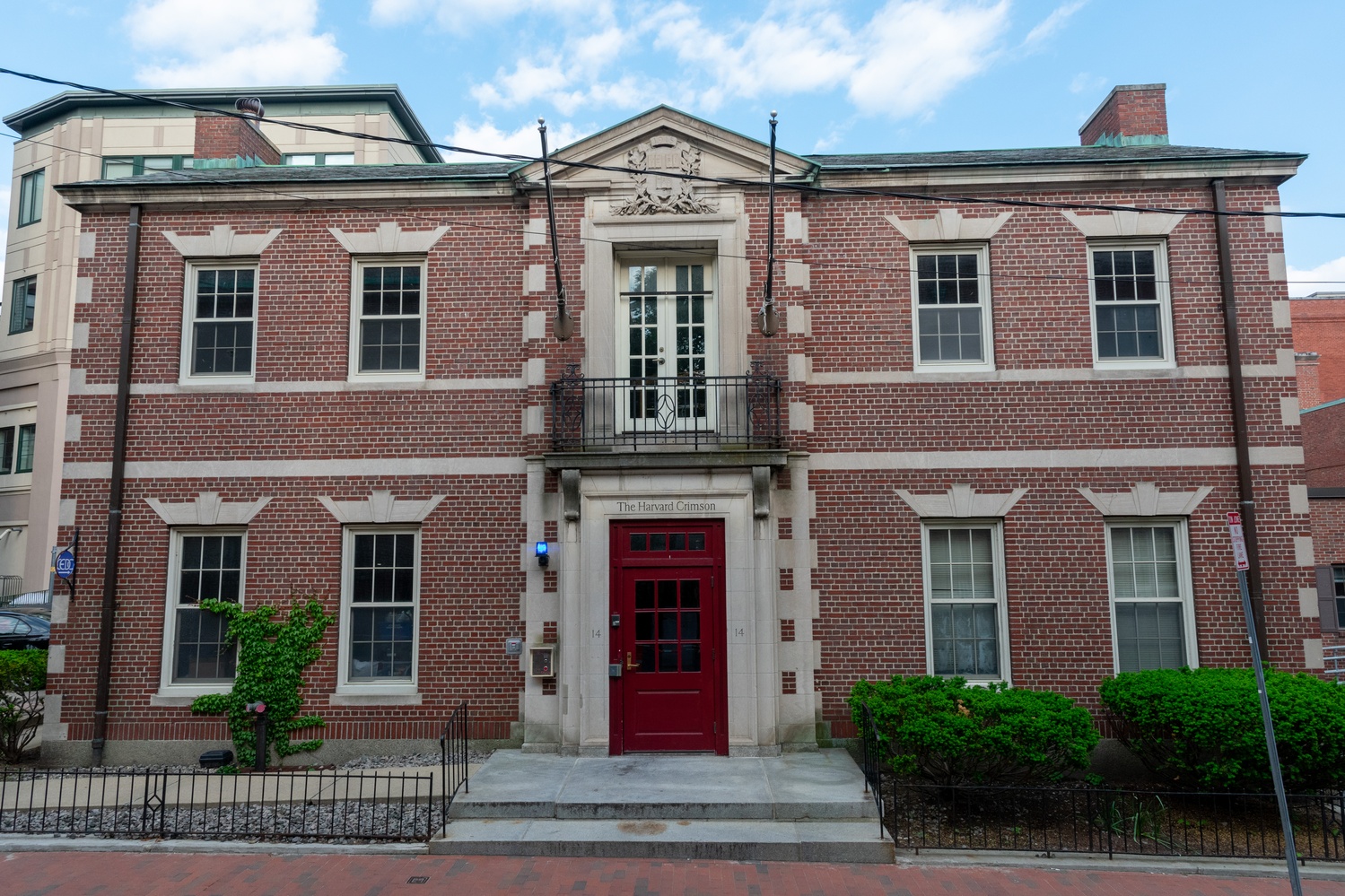
News
Summers Will Not Finish Semester of Teaching as Harvard Investigates Epstein Ties

News
Harvard College Students Report Favoring Divestment from Israel in HUA Survey

News
‘He Should Resign’: Harvard Undergrads Take Hard Line Against Summers Over Epstein Scandal

News
Harvard To Launch New Investigation Into Epstein’s Ties to Summers, Other University Affiliates

News
Harvard Students To Vote on Divestment From Israel in Inaugural HUA Election Survey
The Crimson Signs Amicus Brief in Suit Claiming Trump Admin Suppressed Noncitizens’ Speech in Student Papers

The Harvard Crimson joined 43 other college newspapers on an amicus brief filed Wednesday in support of a lawsuit challenging the federal government’s targeting of noncitizens for political speech.
Stanford University’s student newspaper, the Daily, sued the Trump administration in August over moves to deport or revoke the visas of noncitizens who expressed pro-Palestine political views. The Daily argued the government’s actions, which invoked executive powers under the Immigration and Nationality Act, violated First Amendment protections by discouraging lawfully present noncitizens from expressing themselves in the pages of the Daily.
Several noncitizens asked the Daily to remove their names, quotes, or photographs from articles because of the Trump administration’s actions, and many international students halted talking to the paper’s journalists, according to the Aug. 6 complaint. Current and former staff writers also requested that the Daily take down their opinion pieces.
The Daily is represented by lawyers from the Foundation for Individual Rights and Expression. Its suit names Secretary of State Marco Rubio and Secretary of Homeland Security Kristi Noem as defendants.
Wednesday’s brief — which was filed by the Student Press Law Center, a nonprofit that defends student journalists’ press freedom — argued that the Trump administration’s use of immigration policies chilled contributions from international students and made it harder for student papers to report on political issues.
“Student journalists — especially noncitizen students — report declining participation, self-censorship, and withdrawal from public discourse,” SPLC lawyer Matthew S.L. Cate wrote in the 25-page brief. “Each of these results inflict harm not only on individual students but also on the broader educational and democratic mission of the student press.”
The brief’s signatories included the flagship student papers of seven of the eight Ivy League schools. Student leaders from 11 additional college publications signed in an individual capacity.
The filing also includes stories from several other student newspapers, including the University of Michigan and the University of North Carolina’s papers, which removed content and author names after writers said they feared retaliation from the federal government. It also alluded to an increase in takedown requests submitted to The Crimson this spring.
Crimson President McKenna E. McKrell ’26 wrote on Thursday that freedom of speech “is vital to The Crimson’s work as a student newspaper. Our international staff members are essential contributors to this work, and deserve the very same speech protections their peers are afforded.”
The Trump administration began a sweeping campaign against international students at American universities in the spring. The State Department revoked more than 6,000 student visas by August, according to the department — including visas for 12 Harvard affiliates, which were later restored.
The Department of Homeland Security also attempted to prevent Harvard from enrolling international students by revoking its ability to sponsor visas through the Student and Exchange Visitor Program. Harvard sued over the move, and the DHS’s order was blocked by a federal judge. The judge also halted President Donald Trump’s attempt to ban international students from entering the U.S. on Harvard-sponsored visas, though an appeal from the administration remains pending.
The government also took a series of high-profile actions against individual university students, apparently because of their pro-Palestine views. Columbia University graduate Mahmoud Khalil, who helped lead pro-Palestine protests during his time at the school, was detained in March. Weeks later, Tufts University graduate student Rumesya Ozturk was arrested near the school’s campus by masked immigration agents after coauthoring a pro-Palestine op-ed in Tufts’ student paper.
Both Khalil and Ozturk have been released but still face immigration cases that could lead to their deportation.
The SPLC’s brief argued that the arrests created a climate of fear that spurred “a crisis of unprecedented scale” for student newsrooms nationwide. International students stopped writing opinion pieces about the Israel-Palestine conflict or immigration-related issues, and SPLC received a “surge of calls” from student journalists who could not convince international students to speak on the record for stories, according to the brief.
“Current policies that drive international students away or compel them to self-censor have stripped campus media of the diverse voices necessary to provide the public with a full and accurate understanding of their communities,” wrote Cate, the SPLC lawyer.
The brief also mentioned at least one university’s decision to initiate disciplinary proceedings against students in connection with work published by student newspapers, citing a disciplinary case brought by Columbia University’s Office of Institutional Equity against a student who wrote an op-ed criticizing Israel.
Columbia’s paper, the Spectator, was the only Ivy League student newspaper not to sign the brief.
Lawyers for the federal government have argued in court filings that the Daily does not have standing to sue in the case, saying its claims rest on “speculative injuries to its staff or interviewees.” They also maintained that the president’s sweeping authority over immigration issues should override any First Amendment concerns.
The Daily has asked a federal court to grant summary judgment, which would allow a judge to decide the case without sending it to trial.
—Staff writer Samuel A. Church can be reached at samuel.church@thecrimson.com. Follow him on X @samuelachurch.
—Staff writer Cam N. Srivastava can be reached at cam.srivastava@thecrimson.com. Follow him on X @camsrivastava.
Want to keep up with breaking news? Subscribe to our email newsletter.
